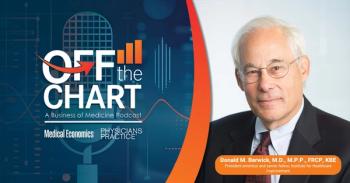
The Future of Small Medical Practices
Physicians in small practice need to explore how they can survive in a changing financial environment.
If you have a LinkedIn account, you may have seen an article by Ken Alston, president of MedVision (a revenue cycle management company) that discussed
While I agree with the idea that there will always be a place in the healthcare environment for small physician practices, I question the use of California as support for the prediction of survival. While it is true that California is a very mature managed care environment and there are a very large number of small (less than four physicians) practices, a closer look would find that those small practices have banded together into large, and in some cases very large, practice networks or Independent Practice Associations (IPAs). These networks have sophisticated data networks, are clinically integrated, and manage the flow of patient care revenue in ways that reward cost-effective care. The size of the organization allows them to deal directly with payers and treat hospitals as vendors rather than partners.
Recently, a national insurer contacted me to help them identify similar physician networks, not affiliated with hospital systems, in key markets they had targeted for expansion. They believed that the California-style networks would have the best chance of managing the cost of care because the member physicians had no loyalty to any hospital or any incentives to utilize the more expensive care settings.
While Alston avoided predictions about the future of small practices, I’d like to weigh in with some ideas about what will, and will not, impact those practices:
• Small practices will continue to be the backbone of medical care in rural settings and in those specialties that either provide care on a cash basis (plastic surgery, laser vision correction, etc.) or those that are underrepresented in a market (i.e. neurosurgery, general surgery).
• Small practices that do not meet the profile above will lose any ability to negotiate rates with payers.
• As costs rise and reimbursement remains flat, the incentive to join hospital system networks will become critical.
• The demise of the small practice can be avoided through the development of either clinically integrated practice networks or the development of flexible merger models such as groups without walls.
• Even small groups need to look beyond the fee-for-service mentality of "do more, make more" and embrace patient management and cost-effective care. Historic investments in EHRs can pay dividends in supporting these initiatives.
CMS reported that the fasted growing alternative payment model is bundled payments. Under this model, a lump sum is paid to the sponsor of the program and they divide the money among care providers, including hospitals. Early adopters of this approach were hospitals who then got to influence how the money is paid and that included physicians. Again, the small practice will have limited bargaining power in this setting. If physicians were the sponsor, like the California examples, they would purchase needed services from the hospital without caring what it cost the hospital to deliver the service.
So what's the bottom line message? Physicians that want to remain in private practice need to be exploring collaborative models that will allow them to move up the financial food chain. This can’t wait until tomorrow because the speed with which payment models are evolving will eliminate the fence-sitters from playing a meaningful role in care management. While reports of the death of small practices are premature it is possible that critical care will be necessary unless those practices are open to the development of new and innovative relationships with their colleagues.
Newsletter
Optimize your practice with the Physicians Practice newsletter, offering management pearls, leadership tips, and business strategies tailored for practice administrators and physicians of any specialty.









